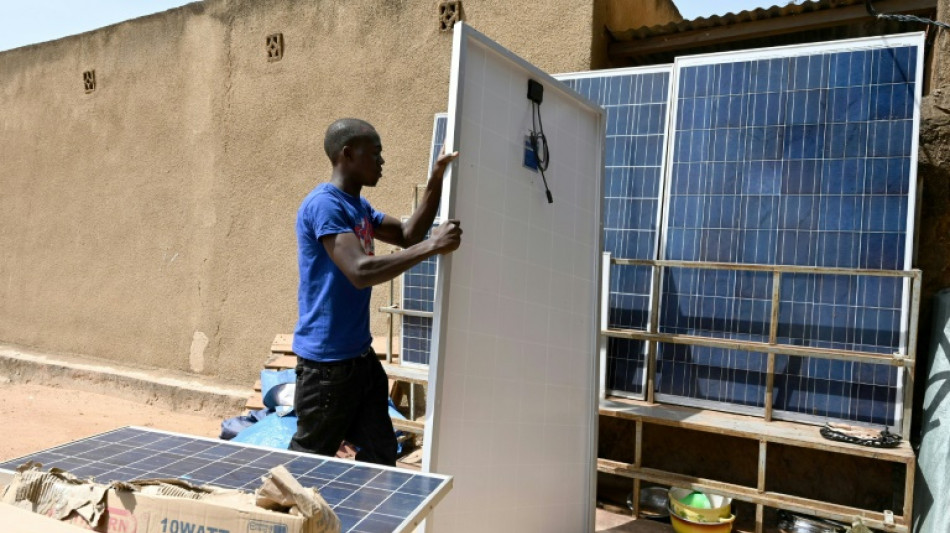
-
 How Lego got swept up in US-Mexico trade frictions
How Lego got swept up in US-Mexico trade frictions
-
UK rights campaigner Tatchell arrested at pro-Palestinian protest

-
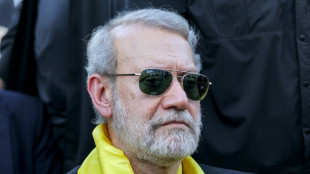 Iran says progress made towards US talks despite attack jitters
Iran says progress made towards US talks despite attack jitters
-
'Empowering': Ireland's first female sumo wrestler blazes a trail

-
 US judge denies Minnesota bid to suspend immigration sweeps
US judge denies Minnesota bid to suspend immigration sweeps
-
Ukraine hit by mass power outages after 'technical malfunction'

-
 AC Milan prolong France 'keeper Maignan deal by five years
AC Milan prolong France 'keeper Maignan deal by five years
-
Arteta hails Arsenal's statement rout of Leeds

-
 Marseille buckle as Paris FC battle back for draw
Marseille buckle as Paris FC battle back for draw
-
Protesters demand 'justice' one month after Swiss bar fire
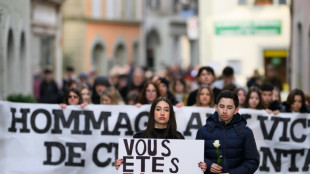
-
 Philadelphia's Paul George gets 25-game NBA drugs ban
Philadelphia's Paul George gets 25-game NBA drugs ban
-
La Rochelle suffer defeat after shock Atonio retirement

-
 'It wasn't working': Canada province ends drug decriminalization
'It wasn't working': Canada province ends drug decriminalization
-
Kishan, Arshdeep star as India down New Zealand in T20 finale

-
 Moreno bags brace but Villarreal held at Osasuna
Moreno bags brace but Villarreal held at Osasuna
-
Kramaric keeps in-form Hoffenheim rolling in Bundesliga

-
 'Skimo': Adrenalin-packed sprint to make Olympic debut
'Skimo': Adrenalin-packed sprint to make Olympic debut
-
Venezuela's 'Helicoide' prison synonymous with torture of dissenters
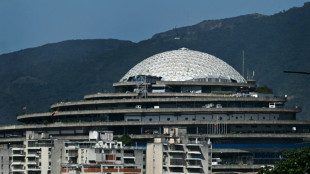
-
 Arsenal thrash Leeds to stretch Premier League advantage
Arsenal thrash Leeds to stretch Premier League advantage
-
Russia's Valieva returns to ice after doping ban

-
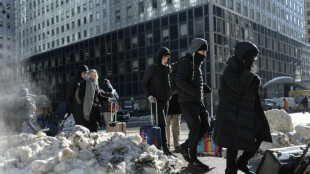 Snow storm barrels into southern US as blast of icy weather widens
Snow storm barrels into southern US as blast of icy weather widens
-
Ukraine sees mass power outages from 'technical malfunction'

-
 Gaza civil defence says Israeli strikes kill 32
Gaza civil defence says Israeli strikes kill 32
-
Kirsty Coventry set to give clues to her Olympic vision in Milan

-
 I'm no angel, Italy's PM says amid church fresco row
I'm no angel, Italy's PM says amid church fresco row
-
Thousands join Danish war vets' silent march after Trump 'insult'

-
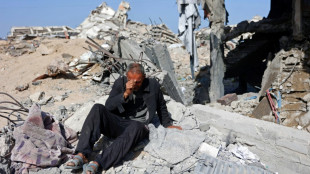 Gaza civil defence says Israeli strikes kill 28
Gaza civil defence says Israeli strikes kill 28
-
Pakistan spin out Australia in second T20I to take series

-
 Melbourne champion Rybakina never doubted return to Wimbledon form
Melbourne champion Rybakina never doubted return to Wimbledon form
-
Luis Enrique welcomes Ligue 1 challenge from Lens

-
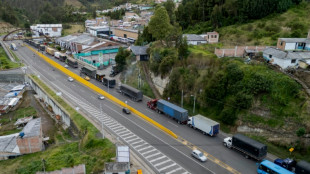 Long truck lines at Colombia-Ecuador border as tariffs loom
Long truck lines at Colombia-Ecuador border as tariffs loom
-
Ex-prince Andrew dogged again by Epstein scandal
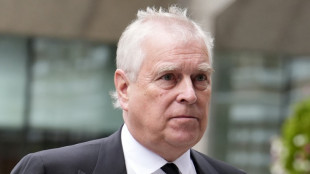
-
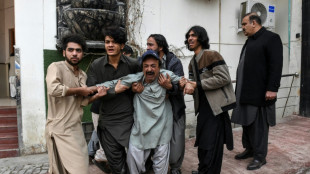 Separatist attacks in Pakistan kill 21, dozens of militants dead
Separatist attacks in Pakistan kill 21, dozens of militants dead
-
'Malfunction' cuts power in Ukraine. Here's what we know

-
 Arbeloa backs five Real Madrid stars he 'always' wants playing
Arbeloa backs five Real Madrid stars he 'always' wants playing
-
Sabalenka 'really upset' at blowing chances in Melbourne final loss

-
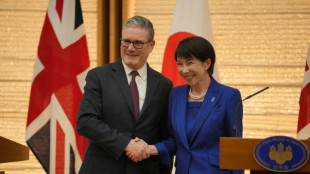 Britain, Japan agree to deepen defence and security cooperation
Britain, Japan agree to deepen defence and security cooperation
-
Rybakina keeps her cool to beat Sabalenka in tense Melbourne final

-
 France tightens infant formula rules after toxin scare
France tightens infant formula rules after toxin scare
-
Blanc wins final women's race before Winter Olympics

-
 Elena Rybakina: Kazakhstan's Moscow-born Melbourne champion
Elena Rybakina: Kazakhstan's Moscow-born Melbourne champion
-
Ice-cool Rybakina beats Sabalenka in tense Australian Open final

-
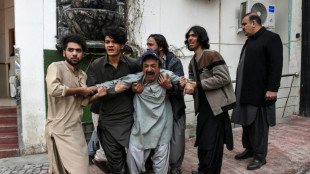 Pakistan attacks kill 15, dozens of militants dead: official
Pakistan attacks kill 15, dozens of militants dead: official
-
Ten security officials, 37 militants killed in SW Pakistan attacks: official
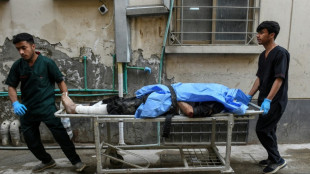
-
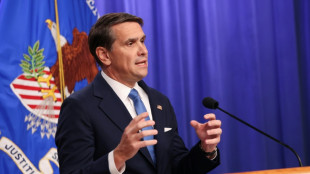 Epstein survivors say abusers 'remain hidden' after latest files release
Epstein survivors say abusers 'remain hidden' after latest files release
-
'Full respect' for Djokovic but Nadal tips Alcaraz for Melbourne title

-
 Wollaston goes back-to-back in the Cadel Evans road race
Wollaston goes back-to-back in the Cadel Evans road race
-
Women in ties return as feminism faces pushback

-
 Ship ahoy! Prague's homeless find safe haven on river boat
Ship ahoy! Prague's homeless find safe haven on river boat
-
Britain's Starmer ends China trip aimed at reset despite Trump warning


Africa needs $25 bn a year for full electricity access: IEA
The number of Africans with access to electricity fell during the Covid pandemic, but $25 billion in annual investments could bring full coverage by 2030, the International Energy Agency said Monday.
The IEA said 600 million people, or 43 percent of the continent's population, lack access to electricity -- mostly in sub-Saharan Africa.
The number of people living without electricity increased by four percent, or 25 million people, between 2019 and 2021, after a decade of progress.
Before Covid, there had been "lots of good developments in countries such as Ghana, Kenya, Rwanda," IEA chief Fatih Birol told AFP ahead of the release of the Paris-based agency's African Energy Outlook 2022.
"But because of Covid and the economic difficulties, we see that this positive trend is reversing now," Birol said.
Russia's invasion of Ukraine has added to the economic strains on Africa from the Covid pandemic, as the conflict has sent the prices of energy, food and other commodities soaring, according to the IEA.
"When I look at 2022, with the high energy prices and the economic burden on the African countries, I don't see many reasons to be hopeful," Birol said.
But Africa could get universal access to electricity by the end of the decade with $25 billion in annual investment, according to the IEA.
Countries need to give international financial institutions, especially development banks, a "strong mandate" to make Africa and clean energy on the continent "an absolute priority", Birol said.
"It's not the case now," he added.
Africa is facing more severe effects from climate change than most other parts of the world, despite emitting less energy-related carbon dioxide (CO2) than any other region, the IEA said.
"We have to see a huge amount of investment coming in Africa in all parts of the energy system, but the most important one will be clean energy options," Birol said.
"We would need to double the energy investments to reach our energy and climate goals."
Renewables -- including solar, wind, hydropower and geothermal -- could account for over 80 percent of new power generation capacity in Africa by 2030, the IEA report said.
While Africa is home to 60 percent of the best solar resources worldwide, it only has one percent of installed solar energy capacity, according to the report.
F.Müller--BTB




